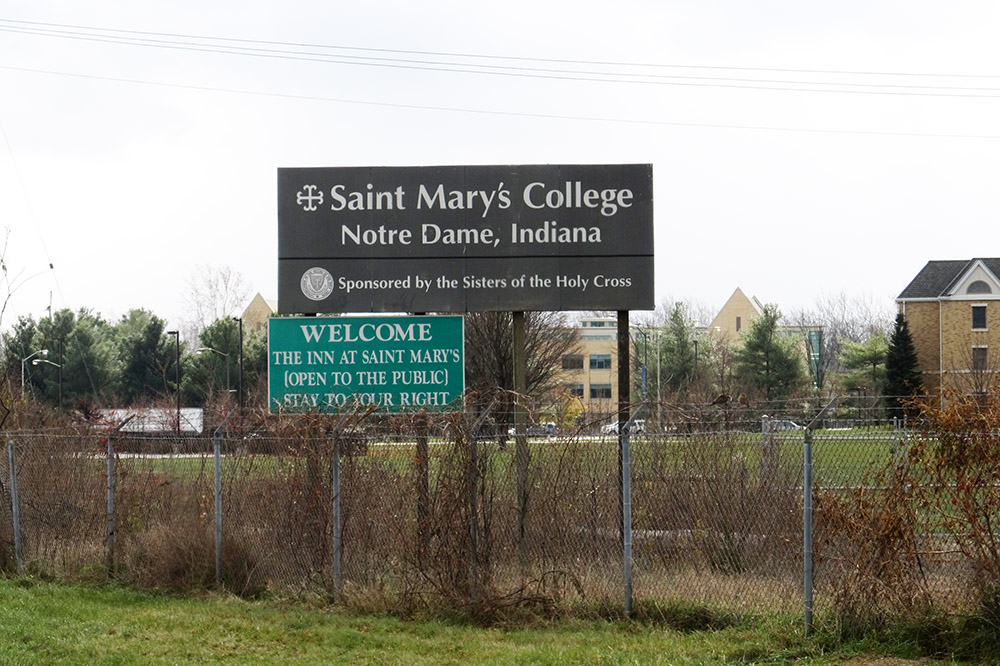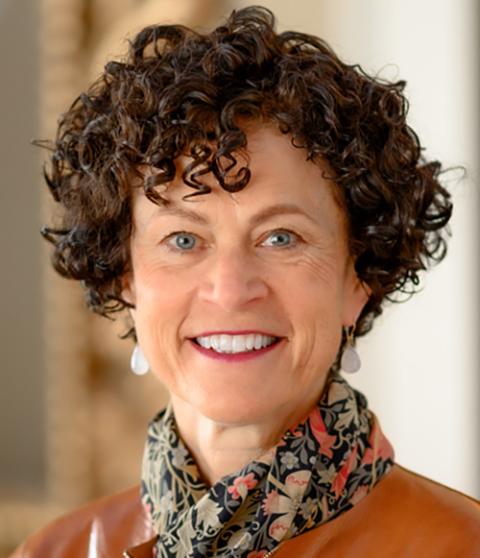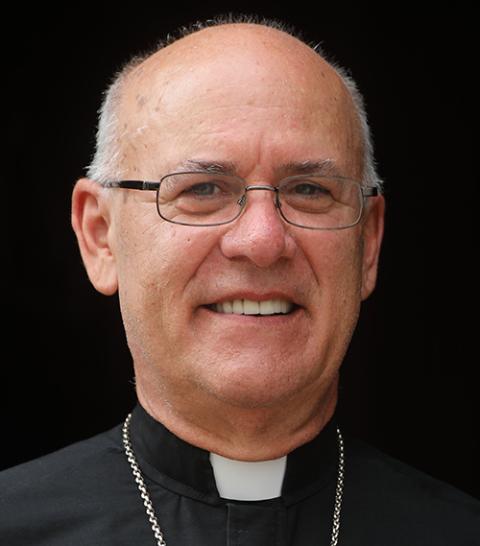
A sign for St. Mary's College is seen in Notre Dame, Indiana. (Flickr/Ken Lund)
A decision by an Indiana Catholic women's college to open enrollment to some transgender applicants as of fall 2024 has resulted in a reprimand by the local bishop and divided students and alumnae. St. Mary's College, founded by the Sisters of the Holy Cross, will now consider applicants "whose sex is female or who consistently live and identify as women."
Although the board of trustees approved changes to the school's nondiscrimination policy in June, the move made national headlines after President Katie Conboy emailed students, faculty and staff on Nov. 21 in response to a story in the student newspaper.
That's when Bishop Kevin Rhoades of Fort Wayne-South Bend, Indiana, learned about it.
"It is disappointing that I, as bishop of the diocese in which Saint Mary's College is located, was not included or consulted on a matter of important Catholic teaching," Rhoades wrote in a Nov. 27 statement.
Rhoades urged the board to "correct" the admissions policy, which "departs from fundamental Catholic teaching on the nature of woman and thus compromises its very identity as a Catholic woman's college."
St. Mary's board includes six Holy Cross sisters, one Holy Cross priest who is a professor at the University of Notre Dame, a Jesuit priest, and laypeople and alumnae.
In Conboy's email, she said the policy "is not only in line with best practices for today's college students, but that it also encompasses our commitment to operate as a Catholic women's college."
"The mission of Saint Mary's College is to empower women, through education, at all stages in life," the new policy reads. "Essential to this mission is fostering a diverse, equitable and inclusive campus experience. This mission is inherently tied to the vision and values of our founders and sponsors, the Sisters of the Holy Cross."
Mariá Balata Wilburn, who graduated in 2008 and who will join the school's Alumnae Association board next year, said she celebrates the new policy.
"I see this update in language as further clarifying the commitment that St. Mary's has made for a very long time to be a safe place to nurture the voices of young women and of gender minorities who have been deprived of equal access to power and decision-making," she said.
She connects the college's new policy to Holy Cross Sr. Madeleva Wolff, its third president, who, Balata Wilburn said, promised students "the discovery of yourselves, the discovery of the universe, and your place in it."
"This is one way we're discovering new ways the universe is changing, and we're called to reflect on how we can make that table bigger, so more voices can be celebrated," Balata Wilburn said.
Advertisement
St. Mary's is not the first all-women's institution — or even the first Catholic all-women's institution — to adopt a trans-inclusive admission policy. In fact, a majority of U.S. women's colleges do. Of the country's 32 women's colleges, 22 admit at least some trans students, according to a list compiled by the national nonprofit Campus Pride.
Other all-women's Catholic institutions open to trans students include:
- Alverno College in Milwaukee;
- College of St. Benedict in St. Joseph*, Minnesota;
- Mount Mary University in Milwaukee;
- College of St. Mary in Omaha, Nebraska;
- St. Catherine University in St. Paul, Minnesota.
Notre Dame of Maryland University is also on the Campus Pride list, but became a coeducational institution this fall.
According to Conboy's email, St. Mary's will be studying the best practices of other schools, though a President's Task Force for Gender Identity and Expression formed earlier this year.
Some alumnae took to social media to express their feelings, pro and con, about the new policy. The Observer, the student newspaper of the University of Notre Dame and St. Mary's, quoted a 1986 alumna who threatened to withhold donations until the school changed the policy. Younger alumnae and current students were quoted as praising the move.
On Facebook, some alumnae who opposed the move described it as the school going coeducational. Bishop Joseph Strickland, who recently was removed as the leader of the Diocese of Tyler, Texas, by Pope Francis, also posted on X (formerly known as Twitter) that he commended Rhoades' response and that St. Mary's is "Compromising its Identity as A Catholic Woman's College."
Sophomore Macy Gunnell is leading opposition to the policy on campus, through an unauthorized organization for conservative students.
"I'm concerned as to the precedent this sets for the future of St. Mary's for all of society," Gunnell told NCR. "I feel this policy erases what it means to be a woman and takes away spaces that are just for us. It completely defies everything that this school was built on, the principles it was founded on as a Catholic institution for women."
Gunnell cited safety concerns, especially around the possibility of trans students sharing bathrooms, locker rooms and living quarters.
St. Mary's has male faculty and staff and allows students from the University of Notre Dame — both male and female — to take courses at the women's school's campus. Graduate programs are also open to men and women.
Balata Wilburn said St. Mary's has already had trans students — trans men who transitioned later in their college careers or shortly after graduation. The coeducational Notre Dame also has trans students.
Notre Dame officials did not immediately respond to an NCR query about the details of their policies for trans students.
In his statement, Rhoades cited Francis' rejection of "gender ideology" that "consigns sexual identity to one's individual self-declaration."
"The sex of a person is discovered, not assigned. It is God who creates human beings as male or female," the bishop wrote.
"The desire of Saint Mary's College to show hospitality to people who identify as transgender is not the problem. The problem is a Catholic woman's college embracing a definition of woman that is not Catholic," Rhoades wrote.
But Conboy also cited Francis, saying he "advocates for love as the appropriate approach to those who are different from ourselves."
She then quoted from the 2020 encyclical Fratelli Tutti: "Love, then, is more than just a series of benevolent actions. Those actions have their source in a union increasingly directed towards others, considering them of value, worthy, pleasing and beautiful apart from their physical or moral appearances. Our love for others, for who they are, moves us to seek the best for their lives."
*This article has been edited to correct the location of the College of St. Benedict.







